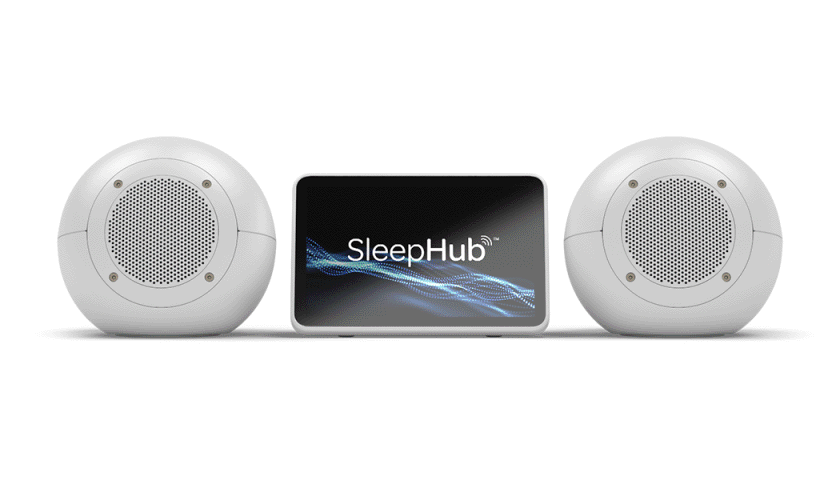Cambridge Sleep Sciences’ device is trialled in Parkinson’s

Sleep disturbances are a common feature for people with Parkinson’s disease, and a device developed to help people with insomnia is now being trialled to see if it can improve their sleep quality.
The SleepHub device – developed by Barkby group company Cambridge Sleep Sciences – is on the face of it a box and speakers that plays relaxing noises to help you fall asleep more easily, but is underpinned by a sound wave technology that its developer claims prompt the brain into the activity patterns that occur during healthy sleep cycles.
“Regular and repeated use of your SleepHub will help to retrain your brain to produce the right sleep sequence and restore sleeping patterns naturally,” according to Cambridge.
The company will work with UK-based advocacy company Parkinson’s Concierge, an organisation that helps to connect patients with Parkinson’s disease to organisations with products and services that may help them, on a preliminary pilot study of SleepHub.
If successful, the pilot could be followed by a clinical trial programme, according to the partners.
“Many people with Parkinson's have trouble falling or staying asleep at night,” says the Michael J. Fox Foundation, which represents people with the disease.
“Sleep problems can arise from Parkinson's motor or non-motor symptoms, medication side effects or other conditions that affect sleep,” it adds.
While some patients with the neurodegenerative disease try medications to help them sleep, these generally mask the underlying problem and can only be used in the short term.
Moreover, they can have side effects, including daytime drowsiness and anxiety, rebound insomnia where symptoms of sleeplessness initially worsen after taking the drug, and dependency.
Cambridge’s executive chairman Dr Chris Dickson said that the project stems from anecdotal reports that people with Parkinson’s had derived a benefit from using SleepHub.
“We wanted to explore this further [and] Parkinson’s Concierge, with their global community of members, made the natural partnership with which to investigate the potential benefits,” he added.
Skin-swab test coming?
Another perennial problem in Parkinson’s disease is the difficulty in getting a diagnosis in the early stages of the disease when the characteristic movement symptoms are less pronounced.
Now, there is hope that changes in the skin could be detectable years before symptoms emerge, thanks to the observation that the skin of people with the disease smells different. According to a BBC report, the project was prompted by a woman who has an amazing ability to detect Parkinson’s through smell.
Retired nurse Joy Milne noticed a “musky” smell on her husband Les, years before he was diagnosed with Parkinson’s.
A team of researchers from the University of Manchester are working on a simple skin-swab test to detect volatile biomarker compounds in sebum, the oily substance secreted by the skin, that might distinguish people with Parkinson’s from those without.
From testing in 500 subjects, the test can detect the disease with around 84% accuracy, regardless of whether the patient has received drug treatment. The samples are fed into a mass spectrometry device to detect the biomarker compounds, a technology which is widely available in clinical labs.
Aside from serving as a diagnostic tool, the test may also be of use in understanding the molecular changes that occur in Parkinson’s as well as monitoring disease progression and whether drug treatments are having an effect, according to the scientists. Their latest work is published in the journal Nature Communications.











